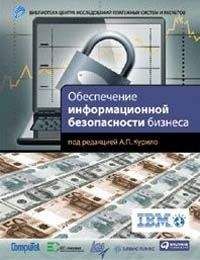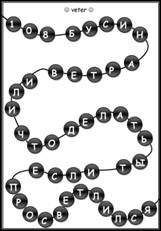Коллектив авторов - В тени регулирования. Неформальность на российском рынке труда
Ссылки на действие экономических и институциональных факторов не столько исключают, сколько дополняют друг друга. В большинстве современных исследований они присутствуют в тех или иных сочетаниях одновременно, тем более, что качество институтов само по себе выступает важнейшим фактором, во многом определяющим траектории экономического развития различных стран.
В данной главе мы постарались схематически очертить основные концептуальные сюжеты, связанные с неформальностью на рынке труда. В последующих главах книги вопросы сегментации, масштаба и структуры неформальности, ее причины и следствия для общества, экономики и домохозяйств будут рассмотрены с помощью больших массивов данных.
Литература
Беккер Г. С. Человеческое поведение: экономический подход. Избранные труды по экономической теории. М.: ГУ ВШЭ, 2003.
Вебер М. Основные социологические понятия // Вебер М. Избранные произведения. М.: Прогресс, 1990.
Заработная плата в России: эволюция и дифференциация / под ред. В. Е. Гимпельсона, Р. И. Капелюшникова. М.: Изд. дом ГУ ВШЭ, 2007.
Сото Э. де. Иной путь. Экономический ответ терроризму // Социум. 2008. (Soto H. de. The Other Path: The Invisible Revolution in the Third World. N.Y.: Harper & Row, 1989.)
Сото Э. де. Загадка капитала. Почему капитализм торжествует на Западе и терпит поражение во всем остальном мире. М.: Олимп-Пресс, 2004. (Soto H. de. The Mystery of Capital: Why Capitalism Triumphs in the West and Fails Everywhere Else. N.Y.: Basic Books, 2000.)
Andrews D., Caldera Sánchez A., Johansson А. Towards a Better Understanding of the Informal Economy. OECD Economics Department Working Paper № 873. Paris: OECD, 2011.
Andvig J. Ch. The Economics of Corruption: A Survey // Studi Economici. 1991. Vol. 43. № 1. P. 57–94.
Bardhan P. Corruption and Development: A Review of the Issues // Journal of Economic Literature. 1997. Vol. 35. № 3 P. 1320–1346.
Bertola G. Job Security, Employment and Wages // European Economic Review. 1990. № 34. Р. 851–886.
Betcherman G. An Overview of Labor Markets World-wide: Key Trends and Major Policy Issues. Washington, D.C.: World Bank, 2002.
Boeri T., Garibaldi P. Shadow Sorting / C. Pissarides, J. Frenkel (eds.) NBER Macroeconomics Annual. Cambridge, MA: MIT Press, 2005.
Boeri T., Garibaldi P., Ribeiro M. The Lighthouse Effect and Beyond // Review of Income and Wealth. 2011. Vol. 57. № 1. P. 54–78.
Bosch M., Maloney W. Cyclical Movements in Unemployment and Informality in Developing Countries. IZA Discussion Paper № 3514. Bonn: IZA, 2008.
Chen M. Rethinking the Informal Economy: Linkages with the Formal Economy and Formal Regulatory Environment // Linking the Formal and the Informal Economy: Concepts and Policies / ed. by Guha-Khasnobis B., Kanbur R., Ostrom E. Oxford: Oxford University Press, 2006.
Earle J., Sabirianova-Peter K. S. Complementarity and Custom in Wage Contract Violation // Review of Economics and Statistics. 2009. Vol. 91. № 4. P. 832–849.
Earle J., Sabirianova-Peter K. S. How Late to Pay? Understanding Wage Arrears in Russia // Journal of Labor Economics. 2002. Vol. 20. № 3. P. 661–707.
Farrell D., Meen D., Baser D. D. Turkey: Making the Productivity and Growth Breakthrough. Washington, D. C.: McKinsey Global Institute, 2003.
Feld L. P., Schneider F. Survey on the Shadow Economy and Undeclared Earnings in OECD Countries // German Economic Review. 2010. Vol. 11. № 2. P. 109–149.
Fialova K., Schneider O. Labor Institutions and Their Impact on Shadow Economies in Europe. Policy Research Working Paper № 5913.Washington, D.C.: The World Bank, 2011.
Fields G. S. A Guide to Multisector Labor Market Models. Paper Prepared for the World Bank Labor Market Conference. Washington, D.C.: The World Bank, 2004 (a).
Fields G. S. Dualism in the Labor Market: a Perspective on the Lewis Model after Half a Century // The Manchester School. 2004 (b). Vol. 72. № 6. P. 724–735.
Fields G. S. Labour Market Modeling and the Urban Informal Sector: Theory and Evidence // The Informal Sector Revisited / ed. by D. Turnham, B. Salomé A. Schwarz. Paris: OECD, 1990.
Fields G. S. Segmented Labor Market Models in Developing Countries // H. Kincaid, D. Ross (ed.) The Oxford Handbook of the Philosophy of Economic Science. N.Y.: Oxford University Press, 2009.
Fiess N. M., Fugazza M., Maloney W. F. Informality and Macroeconomic Fluctuations. IZA Discussion Paper № 3519. Bonn: IZA, 2008.
Gereffi G. The Organization of Buyer-driven Global Commodity Chains: How US Retailers Shape Overseas Production Networks // G. Gereffi, M. Korzeniewicz (eds.) Commodity Chains and Global Capitalism. Westport: Praeger, 1994. P. 95–117.
Harris J., Todaro M. Migration, Unemployment, and Development: A Two Sector Analysis // American Economic Review. 1970. Vol. 40. № 1. P. 126–142.
Hart K. Informal Income Opportunities and Urban Employment in Ghana // Journal of Modern African Studies. 1973. Vol. 11. № 1. P. 61–89.
Hart K. Formal Bureaucracy and the Emergent Forms of the Informal Economy // Linking the Formal and the Informal Economy: Concepts and Policies / ed. by B. Guha-Khasnobis, R. Kanbur, E. Ostrom. Oxford: Oxford University Press, 2006.
Hazans M. Informal Workers across Europe Evidence from 30 European Countries. Policy Research Working Paper № 5912. Washington, D.C.: The World Bank, 2011 (а).
Hazans M. What Explains Prevalence of Informal Employment in European Countries: The Role of Labor Institutions, Governance, Immigrants, and Growth. Policy Research Working Paper № 5917. Washington, D.C.: The World Bank, 2011 (b).
Hu A. Economic Growth and Employment Growth in China (1978–2001) // Asian Economic Papers. 2004. Vol. 3. № 2. P. 166–176.
ILO. Employment, Incomes and Equality. A Strategy for Increasing Productive Employment in Kenya. Geneva: ILO, 1972.
ILO. Decent Work and the Informal Economy. Report of the Director-General. International Labour Conference, 90th Session; Report VI. Geneva: International Labour Office, 2002.
Is Informal Normal? Towards More and Better Jobs in Developing Countries / ed. by J.P. Jütting, J.R. de Laiglesia. Paris: OECD, 2009.
Kucera D., Ronkolato L. Informal Employment: Two Contested Policy Issues // International Labour Review. 2008. Vol. 147. № 4. P. 321–348.
Lazear E. Job Security and Employment // The Quarterly Journal of Economics. 1990. Vol. 105. № 3. Р. 699–726.
Leibfritz W. Undeclared Economic Activity in Central and Eastern Europe – How Taxes Contribute and How Countries Respond to the Problem. Policy Research Working Paper № 5923. Washington, D.C.: The World Bank, 2011.
Leontaridi M. L. Segmented Labor Markets: Theory and Evidence // Journal of Economic Surveys. 1998. Vol. 12 № 1. P. 63–101.
Levenson A. R., Maloney W. F. The Informal Sector, Firm Dynamics, and Institutional Participation. Policy Research Working Paper № 1988. Washington, D.C.: The World Bank, 1998.
Lewis W. A. Economic Development with Unlimited Supplies of Labour // Manchester School. 1954. Vol. 22. № 1. P. 139–191.
Linking the Formal and the Informal Economy: Concepts and Policies / ed. by B. Guha-Khasnobis, R. Kanbur, E. Ostrom. Oxford: Oxford University Press, 2006.
Lipton M. Family, Fungibility and Formality: Rural Advantages of Informal Non-Farm Enterprise versus the Urban-Formal State // S. Amin (ed.) Human Resources, Employment and Development. Vol. 5: Developing Countries. L.: McMillan, 1984.
Maloney W. F. Informality Revisited // World Development. 2004. Vol. 32. № 7. P. 1159–1178.
Mazumdar D. The Urban Informal Sector // World Development. 1976. Vol. 4. № 8. P. 655–679.
Morduch J. Between the Market and State: Can Informal Insurance Patch the Safety Net? // World Bank Research Observer. 1999. Vol. 14 № P. 187–207.
OECD. Is Informal Normal? Towards More and Better Jobs. Paris: OECD, 2009.
Oviedo A. M., Thomas M. R., Karakurum-Ozdemir K. Economic Informality Causes, Costs, and Policies – A Literature Survey. World Bank Working Paper № 167. Washington, D.C.: The World Bank, 2007.
Packard T., Koettl J., Montenegro C. E. In From the Shadow: Integrating Europe’s Informal Labor. Washington D. C.: World Bank, 2012.
Perry G., Maloney W., Arias O., Fajnzylber P., Mason A., Saavedra-Chanduvi J. Informality: Exit and Exclusion. Washington, D.C.: The World Bank, 2007.
Pieper U. Deindustrialisation and the Social and Economic Sustainability Nexus in Developing Countries: Cross-country Evidence on Productivity and Employment // The Journal of Development Studies. 2000. Vol. 26. № 4. P. 66–99.
Sassen S. The Global City – Strategic Site/New Frontier / Dharavi: Documenting Informalities. Delhi: Academic Foundation, 2009.
Schneider F. The Shadow Economy and Work in the Shadow: What Do We (Not) Know. IZA Discussion Paper № 6423. Bonn: IZA, 2012.
Sudarshan R. M., Unni J. Measuring the Informal Economy // R. Jhabvala, R. M. Sudarshan, J. Unni (eds.) Informal Economy Centrestage. New Delhi: Sage Publications India, 2003.
Taubman P., Wachter M. L. Segmented Labor Markets // Handbook of Labor Economics. Vol. 2 / ed. by O. Ashenfetter, R. Layard. Amsterdam: EIsevier Science Publishers, 1986.
Torgler B. Tax Morale and Compliance: Review of Evidence and Case Studies for Europe. Policy Research Working Paper № 5922. Washington, D.C.: The World Bank, 2011.
Wachter M. Primary and Secondary Labor Markets: A Critique of the Dual Approach // Brookings Papers on Economic Activity. 1974. Vol. 1974. № 3. P. 637–680.




